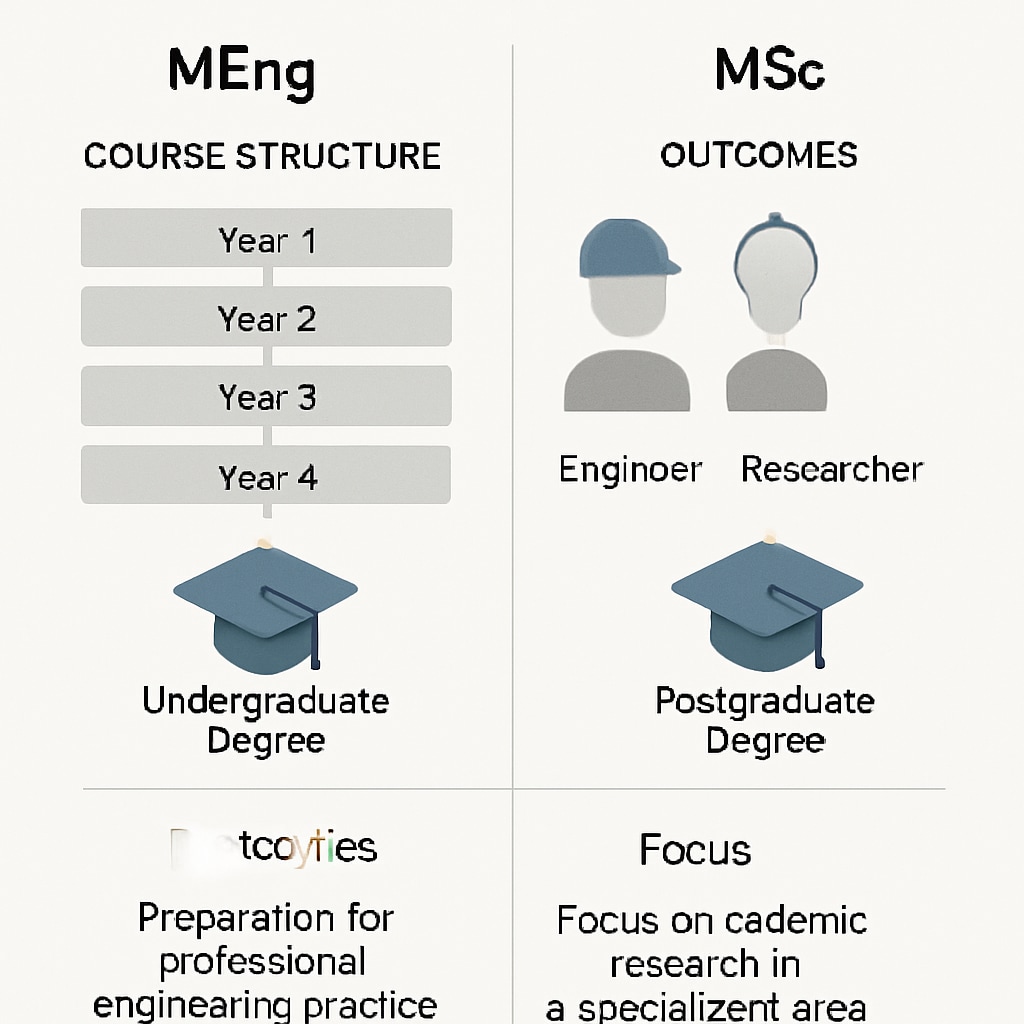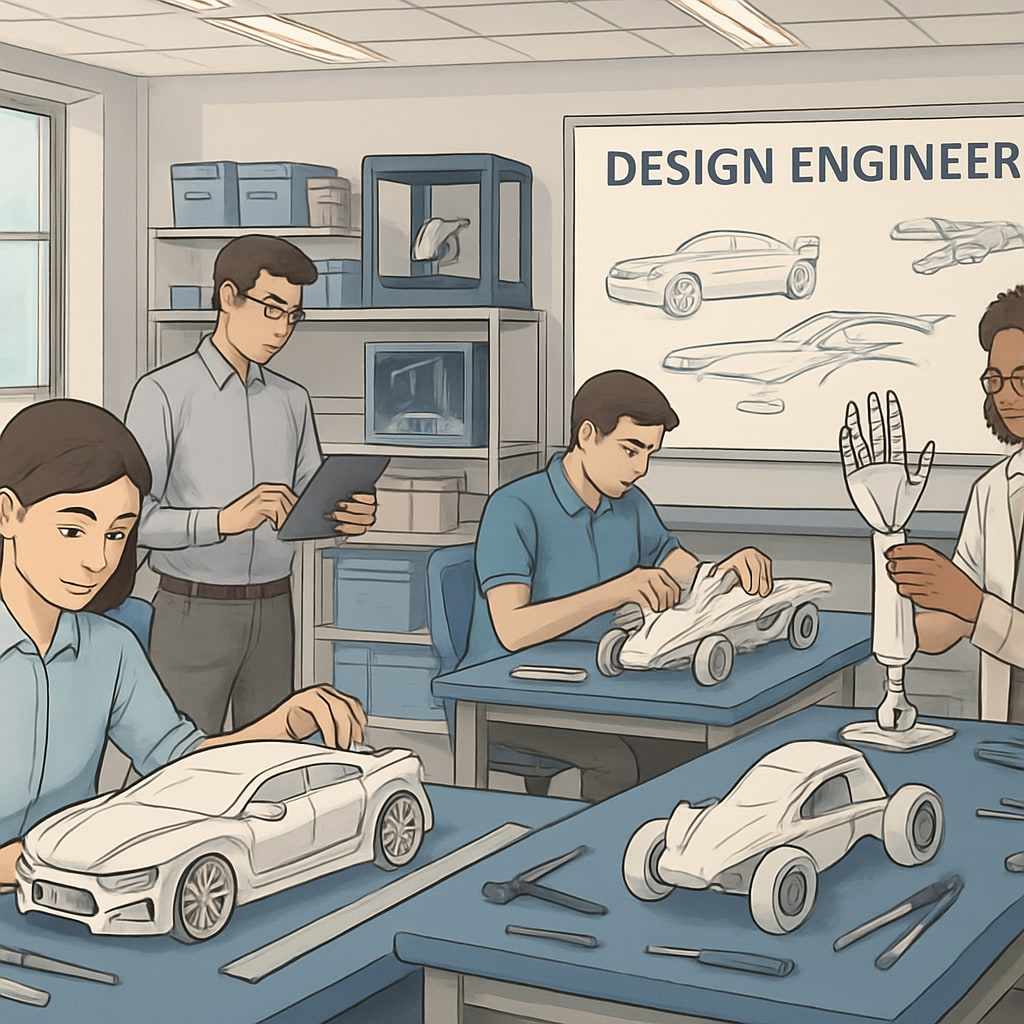Choosing the right degree in design engineering can significantly impact your career trajectory. With options like MEng (Master of Engineering) and MSc (Master of Science), understanding the differences between these degrees is crucial. This article delves into the nuances of design engineering degrees, offering valuable insights for students and parents to make informed choices that align with their professional aspirations.
Design engineering combines creativity with technical expertise, bridging the gap between design and engineering. As industries increasingly demand innovative solutions, the academic path you choose—whether a bachelor’s or master’s degree—plays a pivotal role in shaping your career. But which degree is the best fit for you? Let’s explore.
Understanding the Differences: MEng vs. MSc
The Master of Engineering (MEng) and Master of Science (MSc) are two common postgraduate options in design engineering. While both are highly regarded, they cater to different career objectives and learning styles.
MEng: This degree typically focuses on practical, industry-oriented training. It often includes internships, hands-on projects, and coursework tailored to real-world applications. An MEng is ideal for those aiming to enter the workforce immediately after graduation in roles like design engineer, project manager, or systems designer.
MSc: The MSc, on the other hand, emphasizes academic research and theoretical knowledge. It is often more specialized and may serve as a stepping stone for doctoral studies or careers in academia and research-intensive fields.
When deciding between these two, consider your long-term goals. Do you envision yourself solving practical engineering challenges in industry, or are you more inclined towards academic exploration?

The Role of Bachelor’s Degrees in Design Engineering
Before diving into postgraduate options, it’s essential to understand the foundation provided by a bachelor’s degree in design engineering. Undergraduate programs equip students with basic skills in CAD (Computer-Aided Design), prototyping, and materials science. They also nurture problem-solving abilities and foster a creative mindset.
Some universities offer integrated MEng programs, allowing students to transition directly from a bachelor’s to a master’s degree. These programs save time and provide a seamless academic journey, but they may not be available in all institutions or countries.
For students unsure about pursuing a master’s degree, a strong bachelor’s program can still lead to promising job opportunities in industries such as automotive, aerospace, and product design.
How Degree Choice Impacts Career Prospects
Employers in design engineering value both technical proficiency and creative problem-solving. The degree you choose can influence the roles you qualify for and the industries you can enter.
- Bachelor’s Degree: Graduates often start as junior design engineers, CAD technicians, or product engineers. While growth opportunities exist, they may need additional qualifications for senior roles.
- MEng: This degree typically leads to faster career progression, with graduates qualifying for mid-level positions like project manager or lead design engineer.
- MSc: An MSc opens doors to specialized roles in research, advanced materials design, or academia. It’s also essential for those planning to pursue a PhD.
For example, an MEng graduate might work on developing sustainable automotive designs for a major car manufacturer, while an MSc graduate might focus on researching new materials for lightweight construction at a university or research institute.

Making an Informed Decision
When selecting a design engineering degree, students should consider the following factors:
- Career Goals: Are you aiming for industry-specific roles or academic research?
- Learning Style: Do you prefer hands-on projects or theoretical discussions?
- Financial Investment: Evaluate tuition fees, scholarships, and potential return on investment.
- Geographic Location: Certain countries or institutions may be better suited to your chosen degree.
For additional guidance, consult university advisors, industry professionals, or online resources like Design Engineering on Wikipedia and Engineering on Britannica.
In conclusion, whether you choose an MEng or MSc—or start with a bachelor’s degree—the field of design engineering offers diverse and rewarding career paths. By aligning your academic choices with your personal interests and professional goals, you can lay the foundation for a successful and fulfilling career.
Readability guidance: This article uses concise paragraphs, clear subheadings, and lists to enhance readability. It balances technical terms with accessible language, ensuring clarity for a broad audience.


